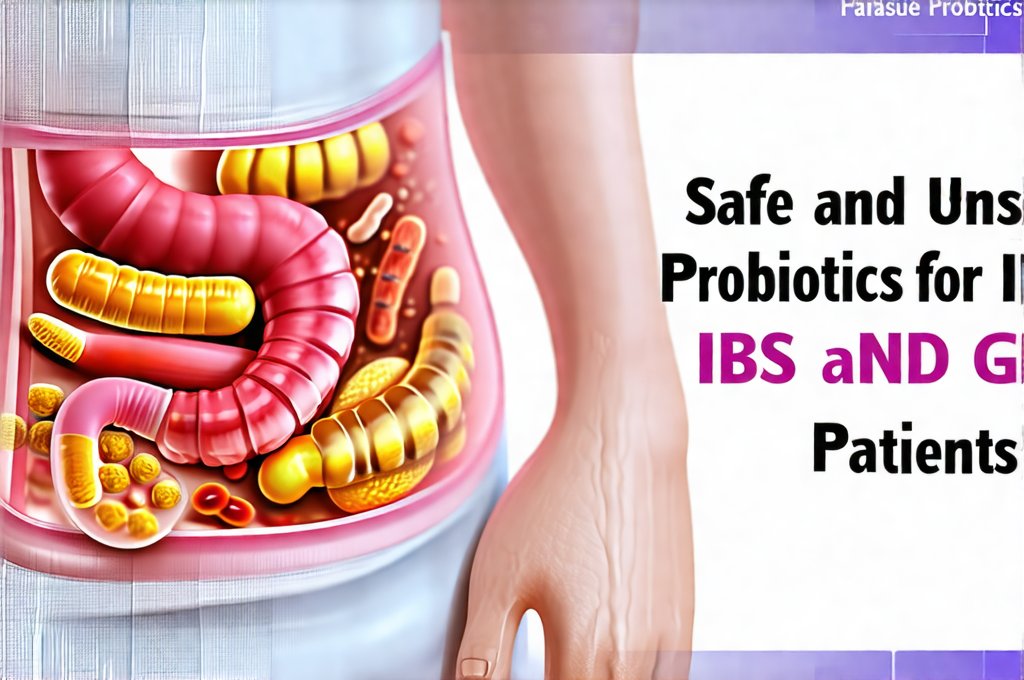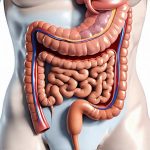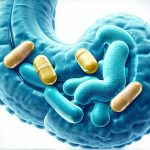Irritable Bowel Syndrome (IBS) and Gastroesophageal Reflux Disease (GERD) are two very common – and often debilitating – gastrointestinal conditions affecting millions worldwide. While treatments vary based on symptom severity, a growing area of interest centers around the gut microbiome and its impact on these disorders. Probiotics, live microorganisms intended to benefit the host, have emerged as potential therapeutic tools. However, navigating the world of probiotics can be incredibly confusing, especially for individuals with IBS or GERD, where certain strains can actually worsen symptoms rather than alleviate them. Understanding which probiotics are safe and potentially helpful, and which should be avoided, is crucial for making informed decisions about gut health.
The complexity arises from the diverse nature of both conditions and the vast array of probiotic species available. IBS presents differently in each person – some experience diarrhea-predominant symptoms (IBS-D), others constipation-predominant (IBS-C), and still others mixed patterns (IBS-M). GERD, similarly, varies in severity from occasional heartburn to chronic acid reflux. This individualized response means there’s no one-size-fits-all probiotic solution. What works for someone with IBS-D might be completely unsuitable for someone with IBS-C or GERD. Furthermore, the gut microbiome is highly personal and influenced by factors like diet, lifestyle, and genetics, adding another layer of complexity to selecting the right probiotic support. Those looking to improve their overall health may also find benefit in exercise and its benefits for IBS patients.
Understanding Probiotics and Their Role in Gut Health
Probiotics aren’t new; humans have consumed them for centuries through fermented foods like yogurt, kefir, sauerkraut, and kimchi. These foods naturally contain beneficial bacteria that contribute to a healthy gut microbiome – the trillions of microorganisms living in our digestive tract. A balanced microbiome is essential for digestion, nutrient absorption, immune function, and even mental health. Disruptions to this balance, known as dysbiosis, are often linked to gastrointestinal disorders like IBS and GERD. Probiotics aim to restore or maintain a healthy microbial balance, potentially alleviating symptoms. However, it’s vital to remember that probiotics aren’t simply “good bacteria” – they interact with the existing microbiome in complex ways, and their effects can be unpredictable.
The mechanisms by which probiotics may exert their beneficial effects are multifaceted. They can:
– Compete with harmful bacteria for resources, inhibiting their growth.
– Strengthen the gut barrier function, reducing “leaky gut” and inflammation.
– Produce short-chain fatty acids (SCFAs), like butyrate, which nourish colon cells and have anti-inflammatory properties.
– Modulate the immune system, helping to regulate inflammatory responses.
– Influence gut motility, potentially easing constipation or diarrhea.
It’s important to distinguish between probiotics and prebiotics. Prebiotics are non-digestible fibers that serve as food for beneficial bacteria already present in the gut, while probiotics are the live microorganisms themselves. Both play a role in supporting gut health, but they function differently. A holistic approach often involves incorporating both into your diet. Combining probiotics and diet changes can lead to even more significant improvements in gut health.
Navigating Probiotic Choices: Safety Considerations for IBS and GERD
Given the variability of these conditions, careful selection is paramount. For individuals with IBS, certain probiotic strains have been shown to exacerbate symptoms. Specifically, some studies suggest that Saccharomyces boulardii can worsen bloating and gas in a subset of IBS patients. Similarly, high doses of Lactobacillus acidophilus have been linked to increased gas production and abdominal discomfort in some individuals with IBS-D. This highlights the importance of starting with low doses and carefully monitoring your body’s response. For GERD sufferers, probiotics containing strains that increase gastric acidity or promote histamine release could potentially worsen heartburn symptoms.
The key is personalized experimentation under the guidance of a healthcare professional. It’s often recommended to begin with well-researched strains known to have minimal side effects and a history of safety in similar conditions. Look for products that clearly list the specific strain (e.g., Lactobacillus rhamnosus GG), not just the genus and species (Lactobacillus rhamnosus). Consider starting with probiotics containing strains like Bifidobacterium infantis 35624, which has shown promise in reducing IBS symptoms, or Lactobacillus reuteri DSM 17938, which may help alleviate GERD symptoms by reducing acid production. Remember that probiotic supplements are not regulated the same way as medications, so quality control can vary significantly between brands. Understanding the best time to take probiotics can also maximize their effectiveness.
Probiotic Strains to Consider for IBS
- Bifidobacterium infantis 35624: This strain has demonstrated efficacy in alleviating IBS symptoms, particularly bloating, gas, and abdominal pain, in several clinical trials. It’s often recommended for individuals with IBS-D or IBS-M. Studies suggest it modulates the immune response and reduces inflammation.
- Lactobacillus plantarum 299v: Some research indicates this strain can help reduce bloating and improve bowel regularity in people with IBS. It appears to have a positive impact on gut motility and SCFA production.
- Saccharomyces cerevisiae (boulardii) – with caution: While often touted as beneficial, it’s crucial to monitor tolerance carefully. Some individuals experience worsened symptoms; others find relief. Start with a very low dose if attempting this strain.
Probiotic Strains to Consider for GERD
- Lactobacillus reuteri DSM 17938: This strain has shown potential in reducing acid production and improving esophageal pH levels, potentially alleviating heartburn and other GERD symptoms.
- Bifidobacterium longum: Some studies suggest this strain can help strengthen the lower esophageal sphincter (LES), preventing acid reflux.
- Lactobacillus gasseri: Research indicates it may reduce gastric emptying time, which can lessen the frequency of acid reflux episodes.
Important Considerations When Introducing Probiotics
- Start low and go slow: Begin with a low dose and gradually increase if tolerated. This minimizes the risk of side effects.
- Monitor your symptoms closely: Pay attention to any changes in bowel habits, bloating, gas, or heartburn. Discontinue use if you experience worsening symptoms.
- Choose reputable brands: Select products from established manufacturers that conduct third-party testing for purity and potency.
- Consider dietary prebiotics: Support probiotic activity by consuming prebiotic-rich foods like onions, garlic, leeks, asparagus, bananas, and oats.
- Consult your healthcare provider: Always discuss probiotic use with your doctor or a registered dietitian, especially if you have underlying health conditions or are taking medications. Probiotics can interact with certain immunosuppressants and antibiotics.
Ultimately, the journey to finding the right probiotics for IBS or GERD is often one of experimentation and personalization. There’s no magic bullet, but by understanding the nuances of these conditions, carefully selecting strains, and monitoring your body’s response, you can potentially harness the power of probiotics to improve your gut health and overall well-being. Those struggling with frequent nausea might also benefit from exploring the benefits and limitations of probiotics. For those looking for dietary guidance, consider planning dinner meals for GERD and IBS to support gut health through nutrition. Finally, exploring the science behind spore-based probiotics can provide further insight into advanced probiotic options.


















